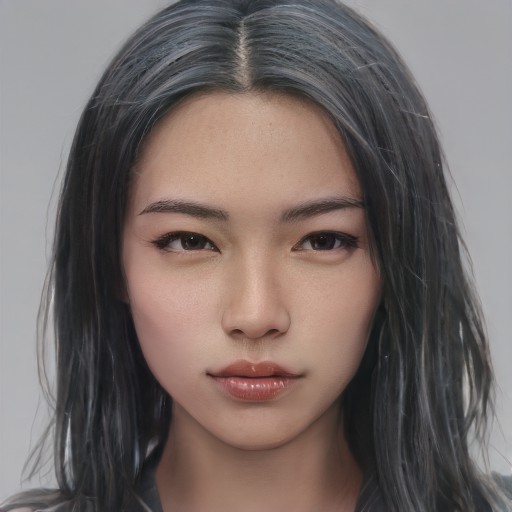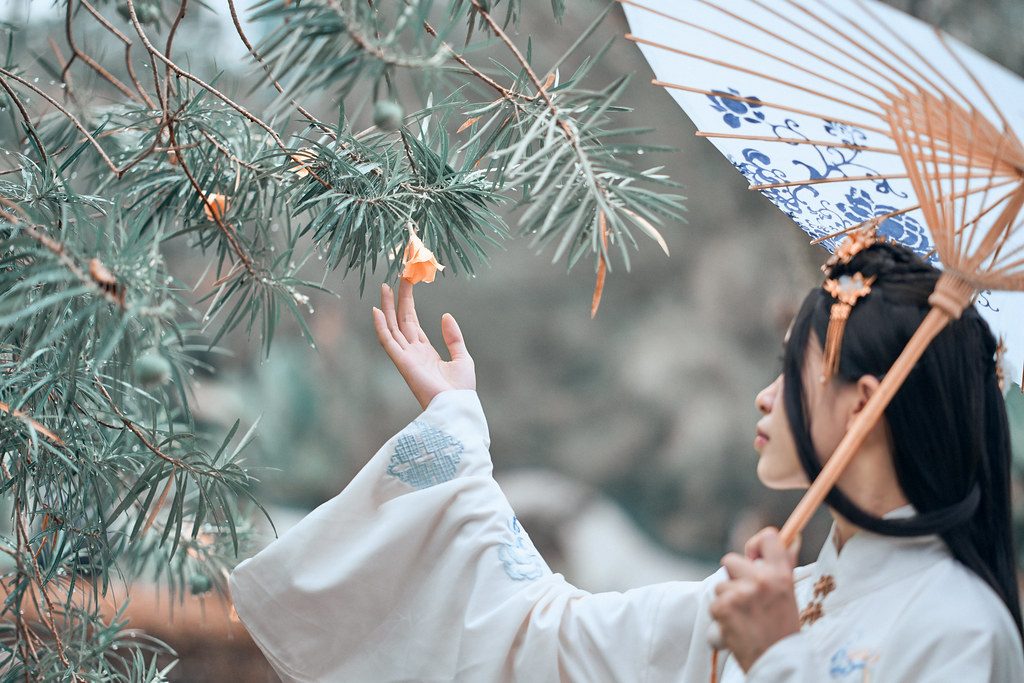Méiguī
Empress
Empress of Cantari. Méiguī was adopted by the previously reigning emperor who took her mother into the palace as a concubine. Unrelated by blood, Méiguī had a different experience growing up compared to her half brothers and half sisters, as 'daughter of a concubine' rather than a 'princess of the emperor'. Despite her humble birth, Empress Méiguī's ascension to the throne became legendary, which softened some of the rebellion to imperial rule in Cantari, though stoked anger within the imperial court. Carefully spoken, Empress Méiguī must navigate a complex situation within the country alongside political slander from Cantari's borders and far beyond.
Since Empress Méiguī's rise to the throne, a new Cantarian era known as the Era of Flowers has begun.
Mental characteristics
Personal history
Empress Méiguī began life as Juan Hua, born to Chǎng Xuě. After Chǎng's husband, a well known patriot of the imperial forces, passed away in a war, Chǎng enrolled to serve a petty mistress who resided in the Emperor's 7th Palace. After an argument between the petty mistress and an Emperor's concubine which involved the petty mistress' execution, Chǎng was promoted to her formal mistress' role. When Juan Hua was born, Chǎng was already a popular concubine, which allowed her daughter to take Emperor Juan's name.
Hua watched the political struggles in the palace, and as long as she observed the etiquette and restrictions of her position, was able to absorb the goings on and the results of the whisperings. During Emperor Juan's rule, Hua had witnessed the fall of two prior empress' before Empress Li was promoted. Hua had a very close relationship with Empress Li, who treated her as a beloved daughter. Empress Li could not conceive due to being poisoned by the previous empress, and could not form a close relationship to the Emperor's other children. When she was on her death bed, Empress Li announced that she believed her death was caused by the Emperor's jealous children, as revenge for the death of the prior empresses. Before she died, she made a will which begged Emperor Juan to prove his love to her by promoting Juan Hua's position and protecting her from jealous siblings.
After Empress Li's death, Emperor Juan demanded ten months of mourning, which is often referred to as 'the black ten' by scholars and led to political tension in Cantari. Emperor Juan had became irritable and irrational, and finally, hours before he died, promoted Juan Hua as his heir.
Juan Hua was to take the throne with an imperial court exhausted by an neurotic emperor, several siblings who disagreed with her ascension and disastrous levels of poverty across Cantari. When she ascended, she declared the end of the Era of Juan and changed her name to Méiguī. The new Era of Flowers was declared soon after.
The Era of Flowers promoted citizens to explore the arts and cultivate a deeper connection with the local land and life itself. Many scholars from outside of Cantari speculate that the change of Era has been very successful, as it refers to the Era of Colours which occurred before the Era of Juan which is a time in history that is admired, and has given regular citizens an 'illusion of peace, a better sense of connection to the Empress and a new desire to engage with nature to distract from financial burdens.'
Gender Identity
Empress Méiguī is known to be very feminine and has created a contrasting culture compared to the traditional masculine warrior culture the previous era cultivated.
Social
Contacts & Relations
The Empress carefully balances her court to maintain power allies and keep an eye on potential trouble.

Species
Ethnicity
Children
Quotes & Catchphrases
"We forgive you. It’s time things go back to how they should be."
Aligned Organization




Comments